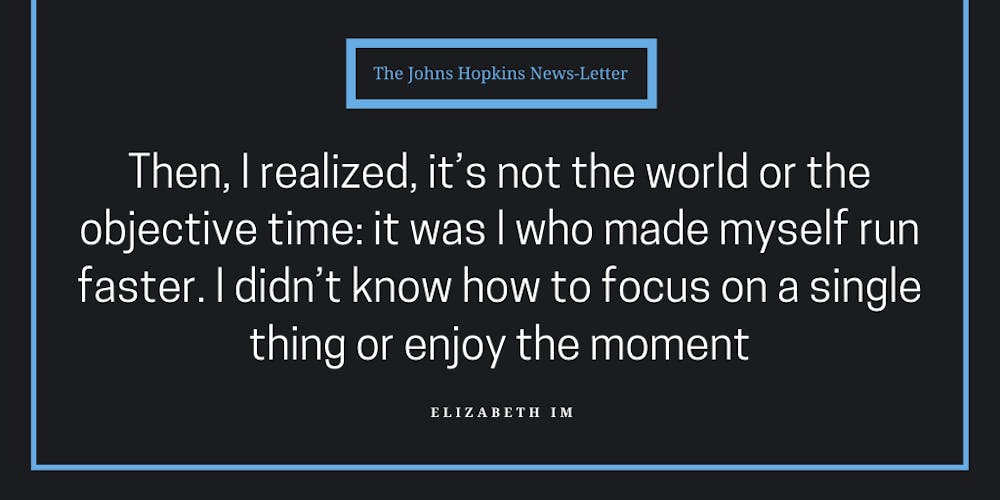
“Sometimes, when you've a very long street ahead of you, you think how terribly long it is and feel sure you'll never get it swept.”
I am drowning in the virtual world.
“And then you start to hurry. You work faster and faster and every time you look up there seems to be just as much left to sweep as before, and you try even harder, and you panic”
The email app on my laptop tells me I have 2224 unread emails. One day I finally attempted to clean out my mailbox; I buckled down and clicked on the “delete” icon until my index finger almost had a spasm.
“In the end you're out of breath and have to stop.”
I still had 200 left when I finally gave up, and since then the number grew exponentially again (I wish bank interest worked the same way). I don’t even know who is emailing me anymore and I don’t remember signing up for them.
Even so, emails are the least of my problems. I have nine different messaging apps on my phone: Messenger, Snapchat, Slack, WeChat, WhatsApp, Telegram, GroupMe, Slack, Instagram DM, KakaoTalk, Discord. Each app has a slightly different purpose for different groups. Every day I wake up to 20 different notifications from millions of group chats and sometimes I lose track of which ones I need to reply to.
Truthfully, messaging still feels uncanny. It lacks humanness, the facial expressions (no, emojis do not make up for it) and the tone of our voices. The subtle, non-verbal cues that are essential in communication are gone. My friends can attest that pre-pandemic Elizabeth did not check her phone regularly and responded slowly. If you wanted to talk to me, we’d talk in-person.
However, since the pandemic has kept everyone on an island of their own, social media and messaging apps seem to be the only method of communication. We can count Zoom and FaceTime, but it takes forever to coordinate a time, right? In our fast-paced digital world, anything that takes more than a second to wait, or load, feels like a torture.
As I already wrote in one of my previous columns, I am taking a gap semester this term. Yet my mind is racing faster than ever, trying to catch up with all the news, to-dos and notifications from both sides of the globe. Because everything is happening online, there is no time “wasted” on walking from place A to B; there’s no more break time in between meetings because all it takes is several clicks onto one Zoom link, the leave button and then onto a new Zoom link. Repeat. Without the time to “waste,” our schedules have become tighter, with everything planned down to the minutes.
“People never seemed to notice that, by saving time, they were losing something else.”
Around this time last year one of my friends told me that she was going to take a gap year. I remember wishing I thought of it earlier because I needed a pause in my life. Everyday there were so many things on my to-do list: deadlines to meet, chapters to read and countless meetings to attend.
This year, I finally took a gap term because of — or thanks to — the pandemic. However, I had still initially found myself with the same fast paced life. Time went by quickly, and I was always planning for something. Even though I was only taking two classes, I didn’t have peace of mind. Then, I realized, it’s not the world or the objective time: It was I who made myself run faster. I didn’t know how to focus on a single thing or enjoy the moment. Part of it was because I was buried deep in social media.
Why do I blame social media? Remember the 9-10 different messaging apps on my phone? My time (and yours!) is split between those, all requiring more of my attention because of how much is going on at a single point of time. I am grateful for messaging apps, for allowing me to keep in touch with my friends from another continent.
However, they have also expanded my reach more than I would have liked. There is constant pressure to keep up with the flood of new posts. As the Netflix documentary The Social Dilemma points out, human brains didn’t evolve to keep a relationship with thousands of people. If prolonged, it forces tremendous stress on our social functioning and cognitive processes.
“Calendars and clocks exist to measure time, but that signifies little because we all know that an hour can seem as eternity or pass in a flash, according to how we spend it.
We’ve lost depth in our interactions. We can stop an ongoing conversation at our will by setting the phone down. We can turn off our video and divide our attention to multiple places, making our timeline split between each of them. We can appear and disappear just as quickly, at the last minute if we will it so, reducing the commitment and the seriousness of any encounter.
Moreover, we’ve become a moving pixel on a Zoom screen. As pixels, we can blip out of one meeting to another like Harry Potter chimney magic. Yet we are all so much more than just a result, an accomplishment or a two-dimensional picture on a screen.
I wish I could end this writing with some kind of a breakthrough. The best I can come up with is to turn off your phone once in a while or to delete social media. But they are not long-term solutions, especially in today’s world when our communication depends on the online platform. The question is, how do we keep a balance? How do we consciously realize how much we are influenced by the flood of information and the two-dimensionality of online communications? How do we keep being humans?
“You must never think of the whole street at once, understand? You must only concentrate on the next step, the next breath, the next stroke of the broom, and the next, and the next. Nothing else.”
I don’t know, but I think I’ll start by trying to focus on the moment and the process. One step at a time and less multitasking.
Disclaimer: All italicized quotes are from the novel Momo by Michael Ende.





